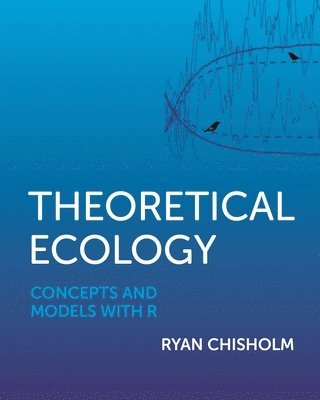Kommande

829:-
Andra format:
- Inbunden 1299:-
An accessible and wide-ranging introduction to the concepts and tools of theoretical ecology Theoretical ecology explores the mechanisms that structure ecological communities using a variety of mathematical and computational tools. Theoretical Ecology shows you how to translate ecological problems into mechanistic models using both mathematics and the programming language R. The book teaches key concepts and core quantitative skills while also devoting significant attention to the reasons for building mathematical ecological models. Why do species populations fluctuate over time and space? How do multiple species coexist? What forces drive nutrient and carbon cycles? Does higher species diversity lead to higher biomass? Each chapter in this incisive and informative book is motivated by questions like these, and every chapter includes boxes that delve into mathematical details and provide coding examples in R. Focuses on mathematical and computational methods while also drawing on conceptual and graphical approaches, and explores how the various approaches complement one another Teaches students the skills they need to implement and analyze ecological models in R Covers topics ranging from single-species, competition, and predator-prey models to community ecology, island biogeography, and nutrient-flux models Provides exercises of gradated difficulty at the end of every chapter Ideal for advanced undergraduate and graduate classrooms and for independent study Includes a road map for class planning and self-study
- Format: Pocket/Paperback
- ISBN: 9780691244952
- Språk: Engelska
- Antal sidor: 352
- Utgivningsdatum: 2025-09-09
- Förlag: Princeton University Press

